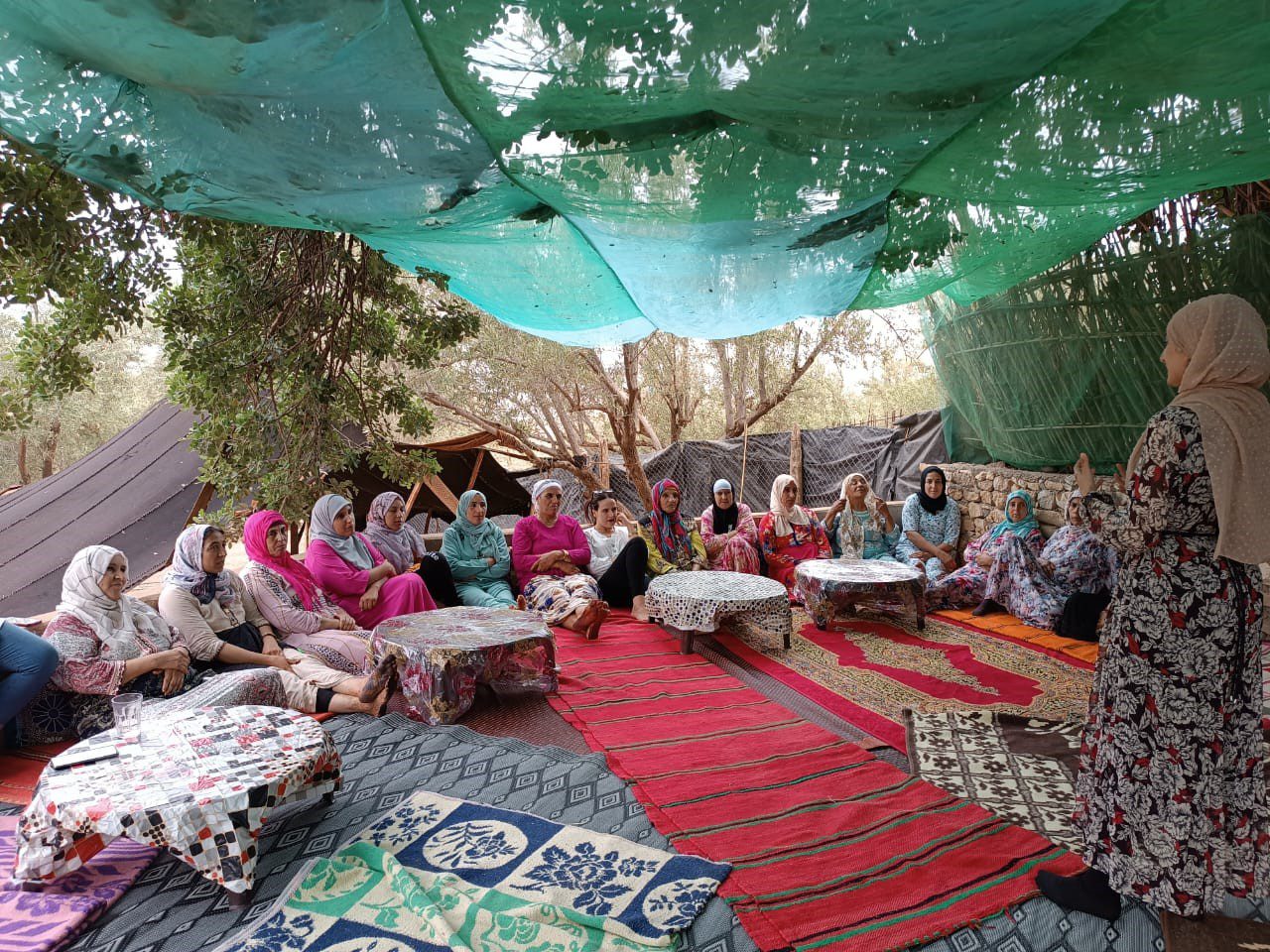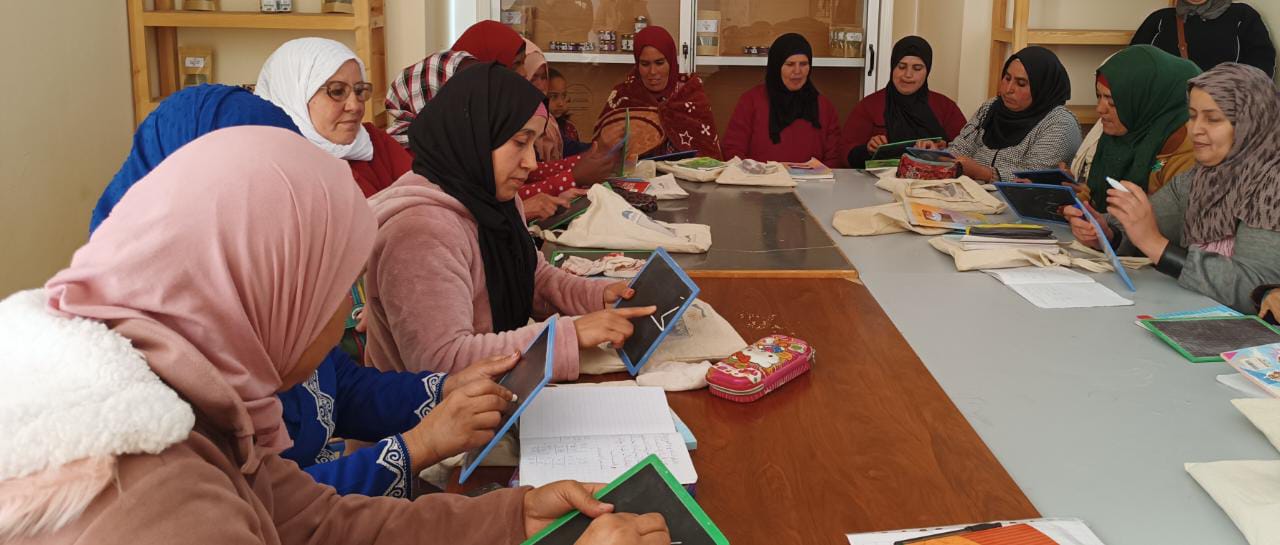By Ellen Hernandez, HAF Writer and Editor

The women in Tafraoute village take responsibility for everything from cleaning, cooking, and child-rearing to exterior home upkeep and farming chores. The majority of men have left to seek employment in big cities, such as Agadir or Casablanca. As a result, they report, the women have adjusted to doing everything.
In November, 28 of the local women of Tafraoute (Sidi Boulakhlaf commune, Azilal province) chose to participate in a rights-based, four-day empowerment workshop to express these sentiments and more in a journey of self-discovery. As one woman, Hakima, remarked, “Thank you so much for thinking of us. These four days were like traveling spiritually.”
It was clear to the team from the High Atlas Foundation from the start that they would have to make an effort to help the women communicate and interact, but, thanks to previous technical training by a delegate of the cooperation office, the women were ready to learn new skills and gain more knowledge. The women broke the ice and brought down walls that used to prevent them from voicing their thoughts and feelings, saying that they are often asked to obey others’ orders without question.
”It is forbidden for us to say NO to a male’s request,” noted Fouzia.
By the last day, they were totally changed, becoming more confident in themselves, expressing their feelings towards each other, and sharing their opinions.
Elsewhere, in the Kerrouchen commune (Khenifra province), forty more women from ages 19 to 70 benefited from a similar workshop through the HAF Family Literacy Beni Mellal Khenifra team. The younger women there dream of building a good future for themselves and their families, whereas the older ones talked about health and food as essential elements of life. However, the one thing that they were all seeking is literacy classes. They all believe that education is the key to all the locked doors.
“When we started the literacy classes, my opinion towards things changed,” said Hafida.
The women, who are participating in literacy classes, are no longer as shy as they once were, even laughing and loudly sharing their opinions, finding the drawing activities as a kind of therapy. Their teacher, Rabha, noted “I teach those women every day. They have never been so active as now. You have brought out the best in us.”
At the end, receiving the certificates was a celebration. They sang and danced to show their happiness. They were proud of what they did, especially since that was the only time they had done something for themselves first.
October and November also saw these other activities take place:
- The team’s program coordinator worked with a driver from HAF to distribute all needed materials for continuation of the literacy classes in the provinces of Fquih Ben Salh, Khouribga, Khenifra, Azilal and Beni Mellal.
- Representatives from our partners in this literacy program, the European Union, joined the team at the Al Maida Attabiyia cooperative to meet the women and take photos of them working and selling their products. The expert photographer also showed the cooperative’s president some marketing and sales “hacks” to help her attract customers.
- A technical training was held in Demnate (Azilal province) with the Family Literacy Team and the USAID Farmer to Farmer trainer, Khadija Barakat, an expert in essential oil extraction, who taught the women of Demnatena and Tislith Northan Cooperatives to make natural products, such as soaps, from oil extraction.
- Abdellah Bassi, regional representative of the Cooperation Office in Meknes; Hassan Belhcen, Director of the National Parc of Khenifra; and one of the team’s program managers conducted two technical training sessions in Boutghdioute and Kerrouchen villages (Khenifra province). Forty-two women in Kerrouchen were excited to learn how to create an artisanal cooperative making traditional clothing and cookies. Another 19 local women from two cooperatives in the Sidi Yahya ou’Saad commune (Boutghdioute) learned the legal process of joining as one for a successful business. They left the training with a clear idea of the next steps, with one woman, Fadma, remarking “We are now aware of our rights and duties.”
At times, the roads to the villages are difficult and long, but the team members are dedicated. These experiences bring the women together to work in harmony toward a shared goal, unimpeded by their age or their languages spoken. The women are always eager to learn more.
Cette publication a été réalisée avec le soutien financier de l’Union européenne. Son contenu relève de la seule responsabilité de la Fondation High Atlas et ne reflète pas nécessairement le point de vue de l’Union européenne.







